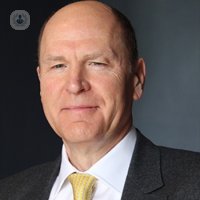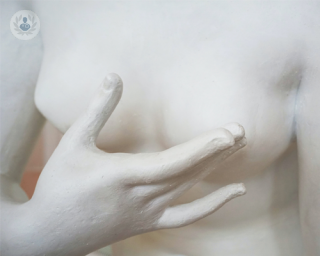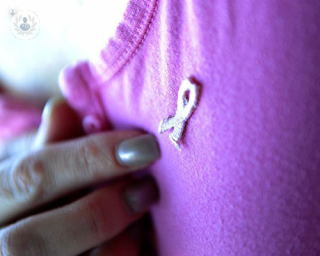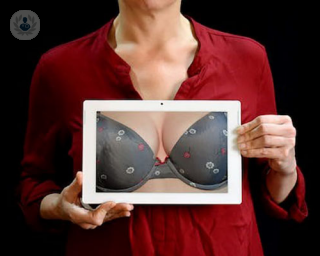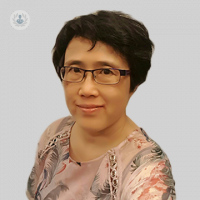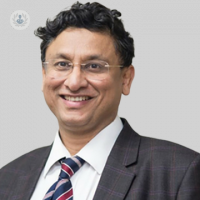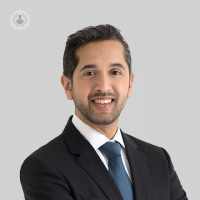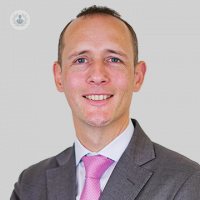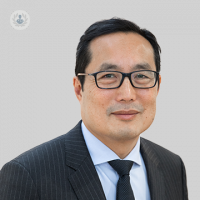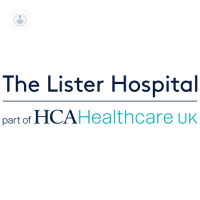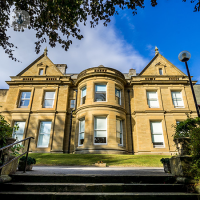Breast reconstruction
Professor Andrew Baildam - Surgery
Created on: 11-13-2012
Updated on: 11-16-2023
Edited by: Karolyn Judge
What is breast reconstruction?
Breast reconstruction is performed after a mastectomy or a lumpectomy; in some cases, the reconstruction is delayed a few months or years after the breast cancer surgery.
The surgery is performed under general anaesthesia and takes about 8 hours.

Why is it done?
Breast reconstruction is primarily done for aesthetic reasons, and leads to marked improvement in the patient’s self-image. The decision to have breast reconstruction surgery is as valid as the decision to not have it - in all cases, the decision is a personal one.
What does it involve?
There are two ways of performing breast reconstruction: with an implant or with the patient’s own tissue (autologous or “flap” reconstruction).
Breast reconstruction with an implant
Only requires surgery in the chest, hence requires fewer interventions than flap reconstruction. The implant is usually filled with a saline solution, silicone gel or a combination of both, with vegetable oil or silicone on the outside and a saline solution inside. The implant is placed under the pectoralis major muscle. The approximate duration of the implant is between 10 and 20 years.
Autologous or flap reconstruction
in this type of reconstruction, skin, fat and even muscle tissue is used to recreate the shape of the breast. The tissue, called a flap, is taken from the abdomen, back, thighs or breast. In “free flap” techniques, the tissue is completely separated from its original blood vessels, moved to the chest then combined with blood vessels in its new location. In “pedicled flap” techniques, the tissue remains attached to its original blood vessels and is moved under the skin to the chest.
The surgical result lasts for the patient’s lifetime, and this constitutes an advantage of flap reconstructions over implants. There are different types of flap and the one used depends on the patient’s body type, the size of their breasts and whether they want to become a mother in the future.
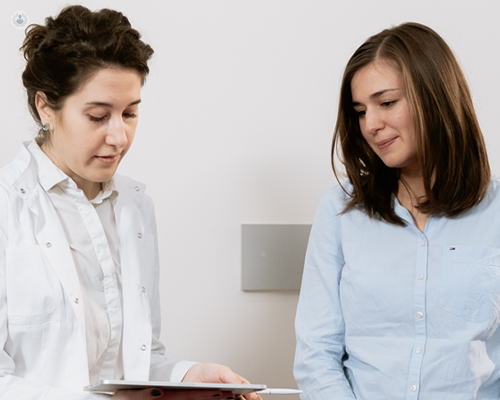
What's involved in preparation for breast reconstruction surgery?
It's important that you follow the surgeon’s instructions, e.g. to stop taking medications such as ibuprofen or aspirin. You will have to stop smoking; you will have to dress as comfortably as possible; and you will have to arrange in advance how to return home after surgery and how to manage during the first few days of recovery.
What is involved in post-operative care?
You will feel tired for a few days after the intervention, and so you should arrange for someone to help you during this time. After the first week, you will be able to take care of yourself.
